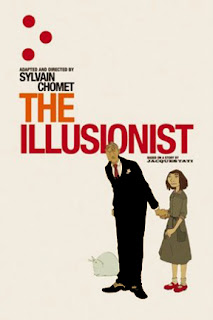 Your Highness feels a lot like a dated film. Not because of its humour, much of it is as dark and edgy as found in any modern comedy, but because of the way it approaches its subject. Very much in the style of The Princess Bride (1987), Your Highness is a fantasy adventure film with lots of black comedy and stoner jokes thrown in for a modern audience. It is not surprising however that these two very different themes do not sit well together at all.
Your Highness feels a lot like a dated film. Not because of its humour, much of it is as dark and edgy as found in any modern comedy, but because of the way it approaches its subject. Very much in the style of The Princess Bride (1987), Your Highness is a fantasy adventure film with lots of black comedy and stoner jokes thrown in for a modern audience. It is not surprising however that these two very different themes do not sit well together at all.On returning home from a perilous quest, Fabious (James Franco) is set upon on the day of his wedding by evil wizard Leezar (an unrecognisable Justin Theroux) who steals his bride with a view to fulfilling an ancient prophecy. With his slobbish brother Thadeous (Danny McBride) in tow, they set out on a quest to reclaim the lost princess and destroy the Leezar for good.
 |
| The film's fantasy and comedic elements rarely gel. |
Your Highness has come under fire for, in a similar way to recent interminable bullshit Sucker Punch (2011), supposedly being sexist and misogynist in its portrayal of women; and as with Sucker Punch, slapping a banner of controversy upon this film is garnering it with attention it does not deserve. Much of the humour is dark, but not outside the realm of Family guy or something similar. Blazing Saddles (1974)’ humour is in many ways much more controversial, and that was made almost 40 years ago. Comparisons with Mel Brookes’ fine send-ups stop there however, as little of the invention or wit of something like Blazing Saddles or Young Frankenstein (1974) is on show in Your Highness. Much of the humour is lost amongst drawn out fight sequences that make the film look like a medium budget, low quality fantasy film, rather than a comedy. There are a few giggles to be had amongst the silliness, but the film ends up being a rather contrived, rather boring exercise stupid dick-jokes and camp nudity and dialog. Academy award winner Natalie Portman and Academy award nominee James Franco seem to enjoy themselves, and most of the funny one-liners come from Danny McBride as Thadeous, despite how utterly hateful his character is. However the film’s warring houses of dark humour and fantasy fun never really come together, and the result is a messy, if occasionally enjoyable trashy farce.





